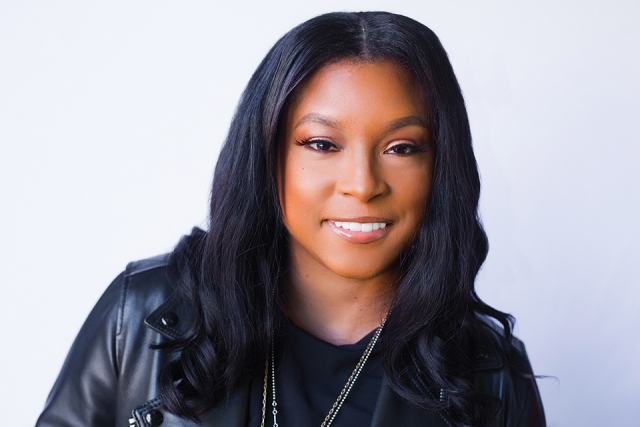
Women of color face particular challenges in corporate America: micro and macroaggressions, casual and systemic racism, and a lack of allyship. All contribute to feelings of isolation and devaluation, impacting many careers before they have a chance to flourish. Author Minda Harts, founder and Chief Executive Officer of The Memo, LLC, delivered that message during her lecture, “Catalyzing Equity: Securing a Seat at the Table.”
Each academic year, the Vincentian Center for Church and Society (VCCS) sponsors a series of academic lectures around a specific theme pertaining to equity and human rights. As part of the 2020–21 Vincentian Chair of Social Justice lecture series, “Women of Color in the Academy,” Ms. Harts discussed her experiences as a woman of color in the workplace and her commitment to change a system she believes is broken.
“Ms. Harts’ personal, practical, and powerful presentation on the experience of women of color in the business world captured the purpose of this series,” observed Rev. Patrick J. Griffin, C.M., Executive Director, VCCS. “Her words of encouragement offered direction to women of color and to those who seek to support these women in the pursuit of just and equitable advancement. Our Christian and Vincentian values found a home in this conversation.”
A first-generation college student and the first in her family to assume a corporate role, Ms. Harts initially believed that hard work, perseverance, and motivation would earn her “a seat at the table.” However, in her experience, a meritocracy did not exist.
“You can work the hardest, come in early and stay late, and others will still get advanced before you,” she observed. Ms. Harts noted that she was often the only woman of color in these roles. “After a while, you feel a sense of isolation. You wonder if you belong in these environments because everything around you shows that you do not.”
Ms. Harts felt that she did not have the agency to speak out against what she thought was wrong; she was often told she took things the wrong way. “What I found out later was that we all have a voice,” she said. “We just have to find out how to use it.”
She added that even in those moments when harm was not intended, people need to acknowledge that harm was caused.
“We have to interrogate and investigate in the workplace,” she said. “Because at the end of the day, don’t we want a workplace that works for everybody? Don’t we want a workplace in which people are thriving, and not just surviving?”
Ms. Harts feels like often these conversations are conducted in an unhealthy way. She began to think about her legacy and how she could enhance these interactions. “Would I have the courage to leave the workplace better than I found it?”
Recognizing she had a sphere of influence in her own world, Ms. Harts realized she could make life better for the women of color who followed. She also believed she could help educate managers on how to become active listeners and allies. “If I could find my voice, maybe I could inspire others to do the same.”
Ms. Harts noted that in moments of crisis, “No one showed up for me, and I did not feel like I could show up for myself.” Upon realizing she worked somewhere where managers stood with people causing the harm, she made a fateful decision: she would not allow this to happen to another woman of color if she could help it.
She started The Memo, LLC, in 2015 as a resource and career platform for women of color in the workplace. “There is hope on the other side,” she said. “There are tables at which we can be seated. There are managers who are invested in our success. There are spaces where we can have psychological safety.”
Ms. Harts then wrote her first book, The Memo: What Women of Color Need to Know to Secure a Seat at the Table. “So many women of color were able to read about their experiences in the workplace through mine.”
Ms. Harts wants women of color to know they do not have to defer their dreams because of a toxic workplace. “There are tools we can use and decisions we can make, because we belong in every room—but maybe every room does not deserve to have us.”
